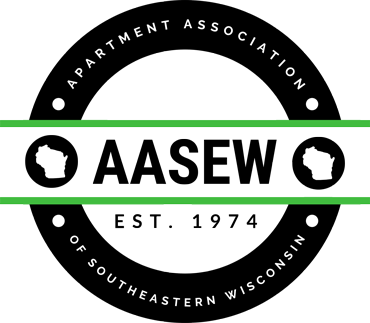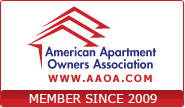Tristan is the Executive Vice President and shareholder with the law firm of Petrie+Pettit and focuses his practice in the area of landlord-tenant law representing landlords and property management companies throughout Wisconsin.
Call us: (414) 276-2850
Milwaukee County Proposes A New Protected Class in Housing - "Receipt of Rental or Housing Assistance"
Posted by Tristan R. Pettit, Esq. in Fair Housing / Discrimination, Legislation, Protected Classes, Milwaukee County / Comments
Milwaukee County Supervisor Maria Dimitrijevec is sponsoring a resolution to amend the Milwaukee County Code of General Ordinances related to Fair Housing to include a new protected class - the "receipt of rental or housing assistance." The resolution has been referred to the Economic Development Committee and may be scheduled to be discussed at the committee's meeting on March 12, 2018 at 9 AM.
If passed, this resolution would have a significant impact on landlords and property managers. Currently a landlord may legally refuse to accept any applicant if they receive rental or housing assistance. If this resolution passes, landlords in Milwaukee County would no longer be able to do so without risking a discrimination claim.
Under the proposed resolution, "receipt of rental or housing assistance" is defined as including the receipt of any form of financial contribution from a third party for the purposes of creating or keeping affordable housing for tenants, purchasers, or other potential housing recipients, including but not limited to, assistance provided pursuant to Title 42, United States Code, section 1437f (commonly known as the "Section 8" housing program), the HOME Partnership Program, the Community Development Block Grant program, or any other public or private rental assistance vouchers or programs.
Rental or housing assistance in SE Wisconsin is often referred to as "Section 8" or "Rent Assistance" or "RA." The most common form of rental assistance is run through the Section 8 program. Section 8 tenant-based housing assistance is available to low-income families and the subsidy moves with the tenant and can be used to pay toward rent at any conventional market-rate rental units. Essentially the tenant chooses the rental unit where they want to live and if the tenant meets the landlord's screening criteria, the landlord accepts the RA (which will be required in Milwaukee County if this resolution passes), and the rental unit passes an inspection, then the Section 8 program will pay the RA directly to the landlord. The RA typically does not cover the entire monthly rent amount and therefore the tenant will be required to pay the difference to the landlord.
In order for a tenant to receive RA they need to find a landlord that will accept it. In order for a landlord to receive RA on behalf of a tenant the landlord must enter into a contract with the government or its agent. Here is an example of such a contract.
Some things to be aware of when entering into a contract to receive RA include:
1. The government or its agent determines what the maximum amount of rent that can be charged by the landlord for the rental property based on a number of factors. Once that maximum amount is determined, a landlord is prohibited from charging the tenant a higher amount.
2. The government or its agent will inspect the rental unit and it must pass certain housing quality standards and be maintained up to those standards throughout the lease term. If repairs are required to pass the inspection the landlord must pay for them and the landlord may also be cited for building code violations. At a minimum there will be annual inspections. If the standards are not met the government may withhold paying the RA to the landlord.
3. A landlord would not be able to use a month-to-month rental agreement with the tenant as all of the agencies that administer RA require the landlord to enter into an initial 12 month lease.
4. The government does not "screen" the tenant for the landlord - screening remains the landlord's responsibility.
5. The tenant cannot be evicted if the government fails to pay its portion of the monthly rent.
6. The landlord must serve the government with copies of any notice for failure to pay rent or other breach that the landlord serves on the tenant. If this is not done, it can serve as a basis for any ensuing eviction to be dismissed.
7. The government has no liability or responsibility to the landlord for the tenant's behavior (again, the government is not screening the tenant for you).
8. A landlord's lease must be approved by the government. A landlord's lease will be required to include the government's tenancy addendum and ideally the lease term (between the landlord's lease and the government's addendum) will be identical (but if it is not, the government's lease addendum controls).
Accepting RA is not for every landlord. For every landlord that loves the program I have heard just as many landlords that dislike it. Regardless of your view, you must be prepared to give up some control to the government in exchange for receiving the guaranteed RA from the government. There has been a trend around the country of municipalities adding "rental assistance" to the list of protected classes, so I am not surprised to see Milwaukee County joining in.




